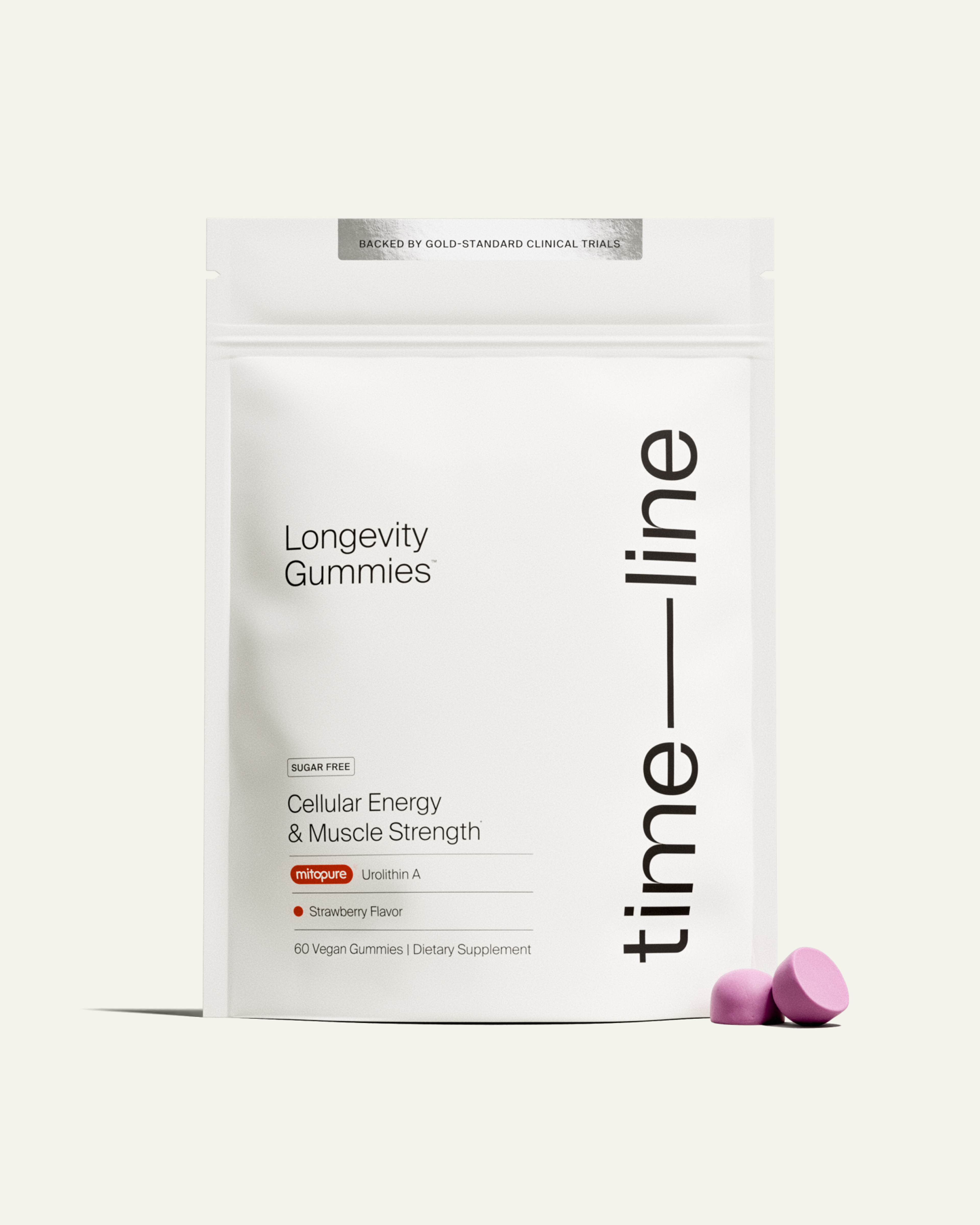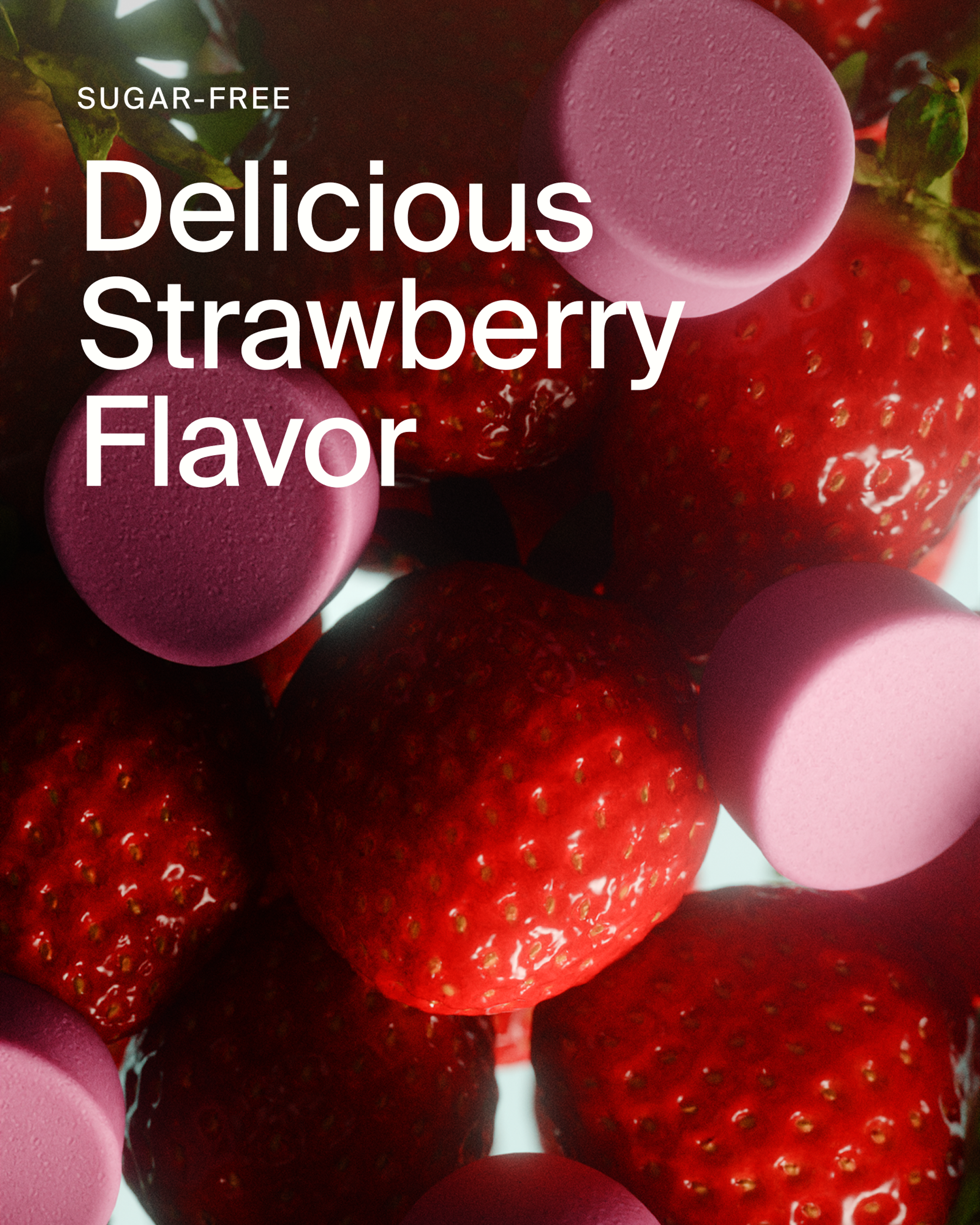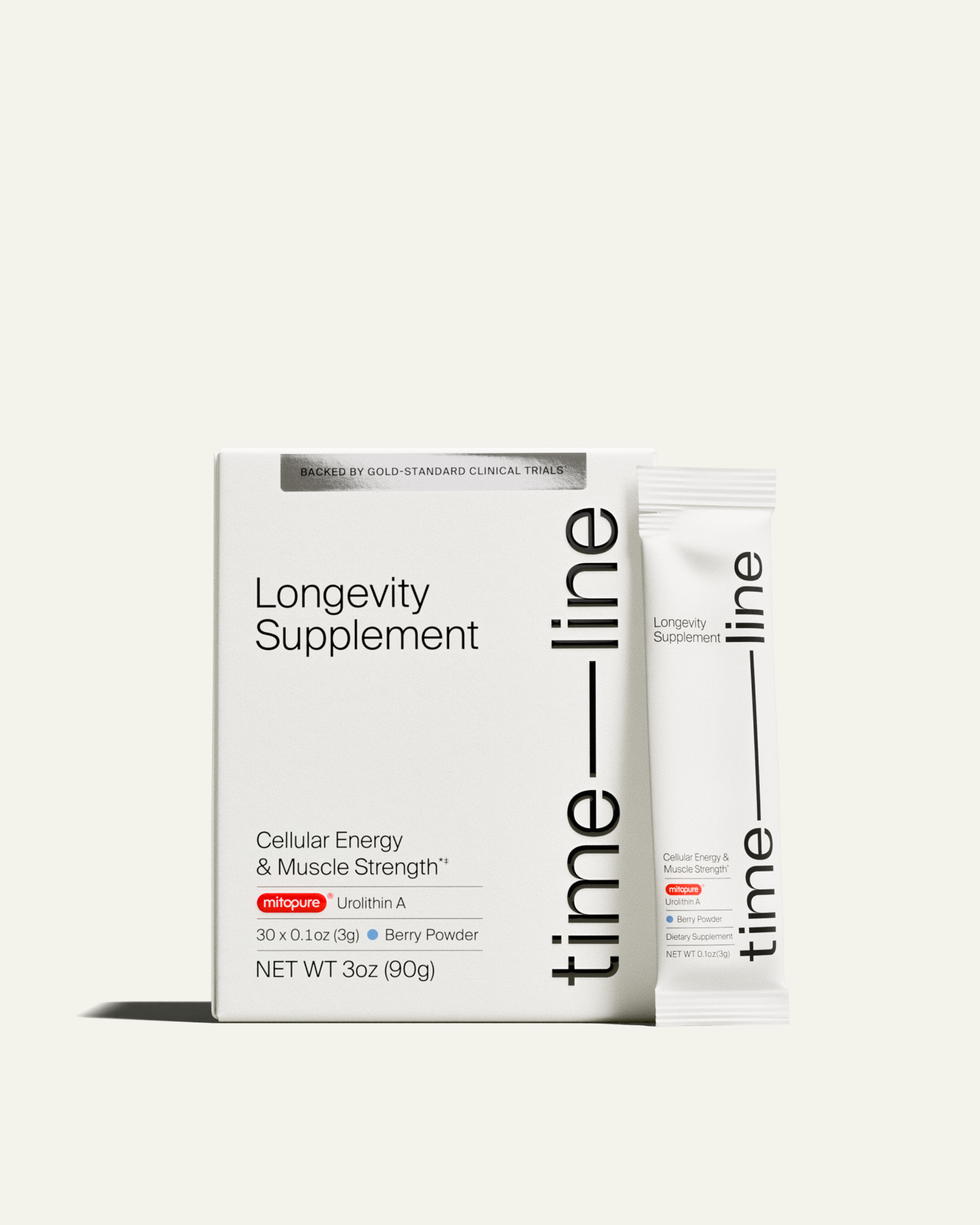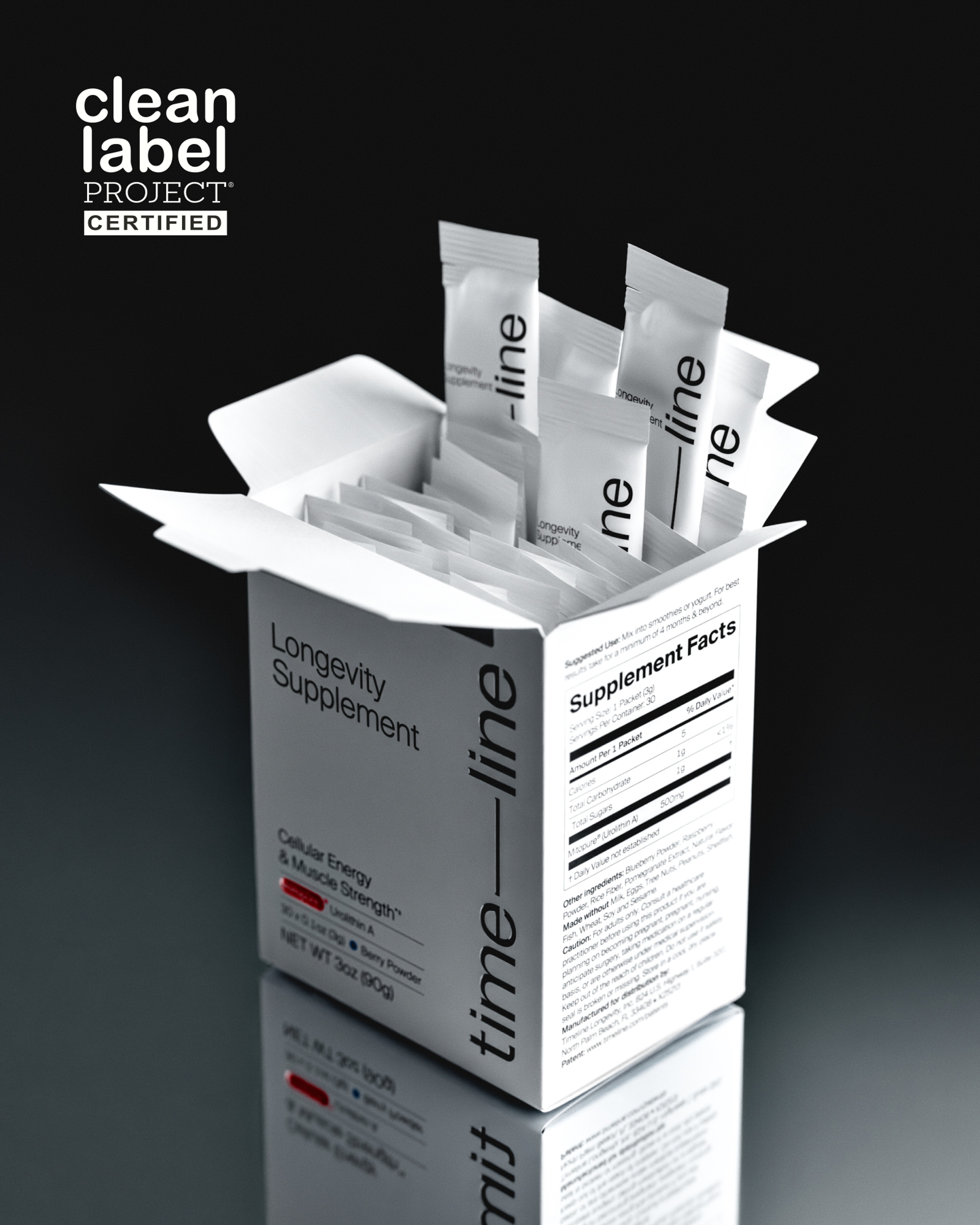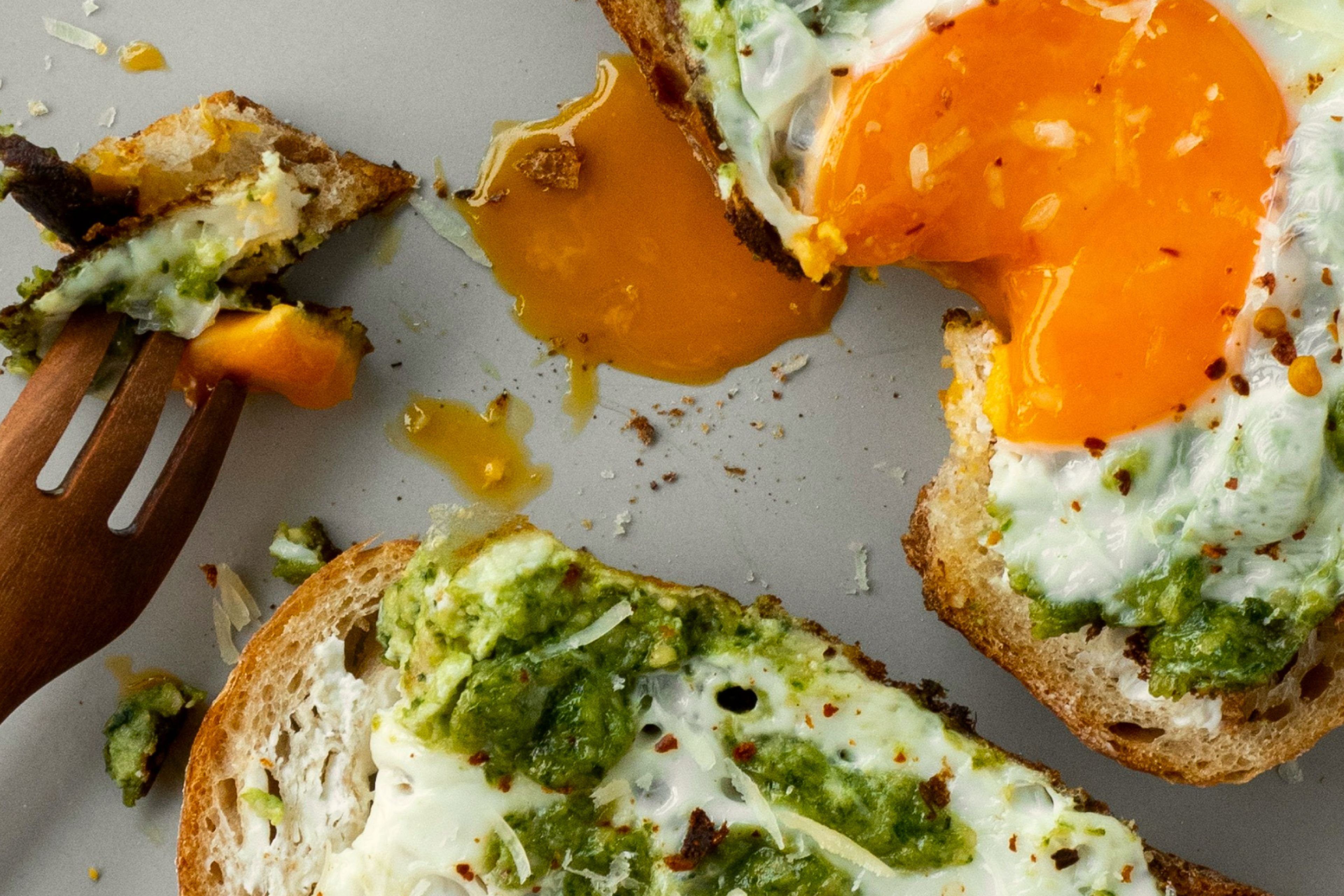The Best Food for Brain Health, Memory, and Mental Clarity
What you eat can influence your brain health. Discover the best food for brain health and what to avoid for optimal memory, focus, and cognition.
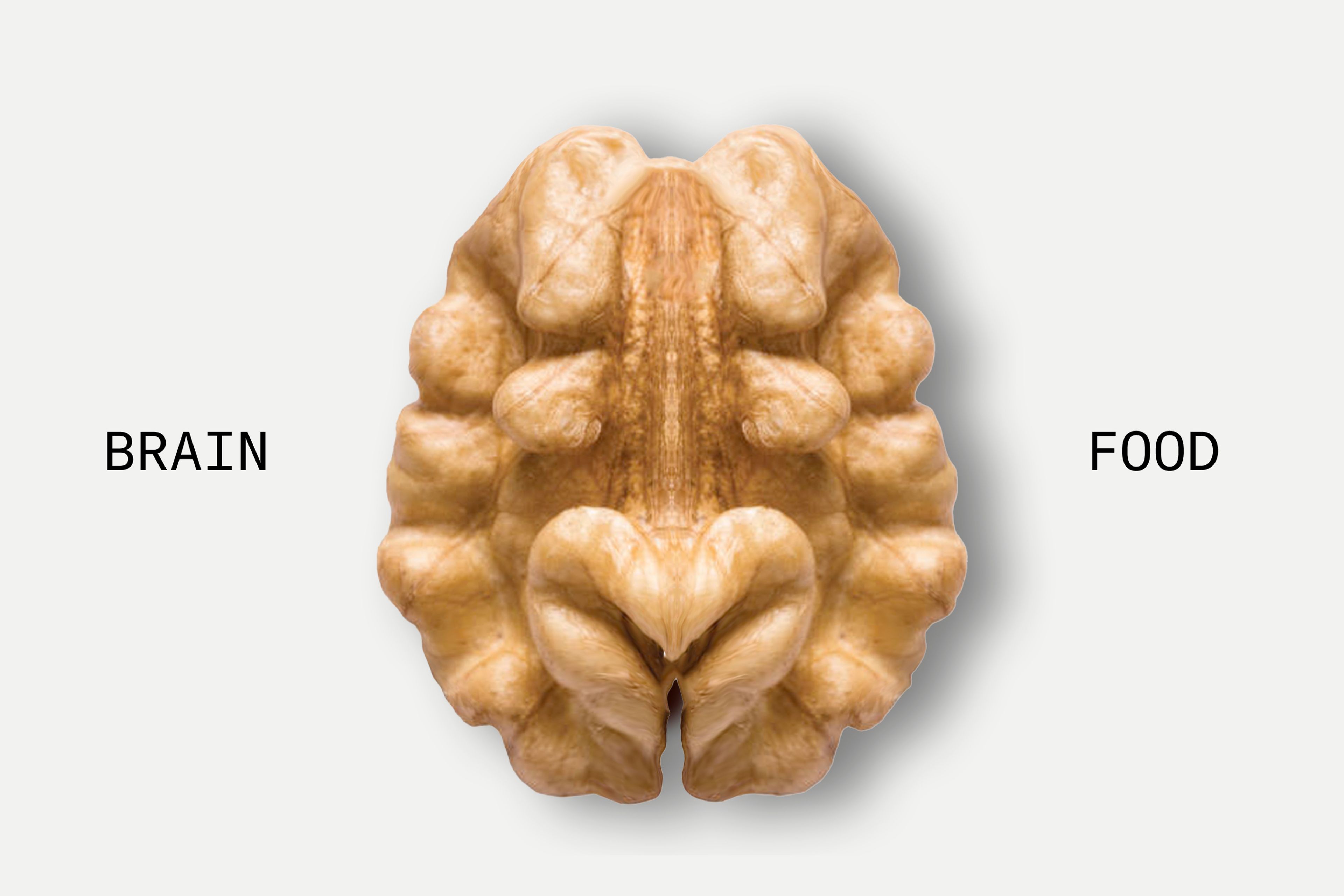
What to know
The foods we eat influence brain health, including our cognitive abilities, mood, and the risk of neurological disorders.
A Mediterranean-style diet rich in leafy greens, fatty fish, walnuts, and other nutrient-dense foods like Lion’s mane mushrooms supports brain health and can reduce the risk of cognitive decline.
Diets high in ultra-processed foods that are high in added sugars, and unhealthy fats may negatively impact brain function.
Prioritizing a diet and is essential for maintaining cognitive function and overall mental well-being as we age.
The foods we choose don’t just fuel our bodies—they shape the health of our brains. While the right diet can boost your cognitive abilities, elevate your mood, and even offer protection against brain aging, the wrong choices could put your mental well-being at risk.
By discovering the best food for brain health, you’ll be empowered to make smart nutritional decisions that keep your mind as sharp and vibrant as possible. Whether you are looking to boost your mental focus at work or preserve your brain power for years to come, your diet matters.
Let’s explore the best diet for brain health and uncover how to protect your brain now and in the future.
How does the food you eat affect your brain?
Our food choices can make or break our brain function. And while an occasional fatty or sugar-laden meal poses minimal harm, eating this way regularly can negatively impact brain function over the long term.[1]
There also appears to be an association between certain eating patterns and mood.
Emerging data shows suggests that a typical “Western” diet that is high in ultra-processed foods may be associated with an increased risk of developing depression, anxiety disorders, and mild cognitive impairment. On the flip side, specific healthful dietary patterns, such as a Mediterranean-style diet, appear to be protective against these disorders.[2]
Research suggests that certain foods may support brain health, potentially aiding in maintaining cognitive function as you age. These foods provide a range of nutrients, including antioxidants[3], vitamins, minerals, and healthy fats, which are believed to contribute[4] to overall brain health and function.
Many of these foods can not only promote the formation of new nerve cells in the brain, [5]but they can also support the health of our mitochondria. These are the energy networks involved in proper brain functioning, and defective mitochondria are associated with brain dysfunction.
Food for thoughts
Some of the best brain food contains specific nutrients, antioxidants, and fats that protect the brain.
Here is a list of the core foods to start with, whether you want to improve your memory and focus or speed up your decision-making abilities.

Green leafy vegetables
Eating more leafy greens - think kale, spinach, swiss chard, and collard greens, may help to slow cognitive decline with aging. This is thought to be due to certain brain-healthy vegetable nutrients, such as lutein, beta-carotene, and vitamin K.[6]
These nutrients function as antioxidants, helping protect the body from free radicals, unstable compounds that can accelerate brain aging.
Fatty fish
Fish such as salmon, tuna, and mackerel may also help slow cognitive decline with aging. These fish are abundant in omega-3 fats, anti-inflammatory fats that are shown to increase learning, memory, cognitive well-being, and blood flow in the brain.[7]
The American Heart Association recommends consuming at least 2 servings (3 ounces) of this type of fish per week to get your weekly omega-3 dose.[8]
Walnuts
Walnuts, as the richest source of plant-based omega-3 fats, are considered one of the best nuts for brain health. In particular, walnut intake may be beneficial in reducing the risk of cognitive decline with age.[9]
Blueberries
Blueberries are another important brain food for memory, especially in older adults. Several studies show blueberry intake being linked to improved memory, executive function, and fine motor skills in adults over 60 and those with mild cognitive impairment.[10]
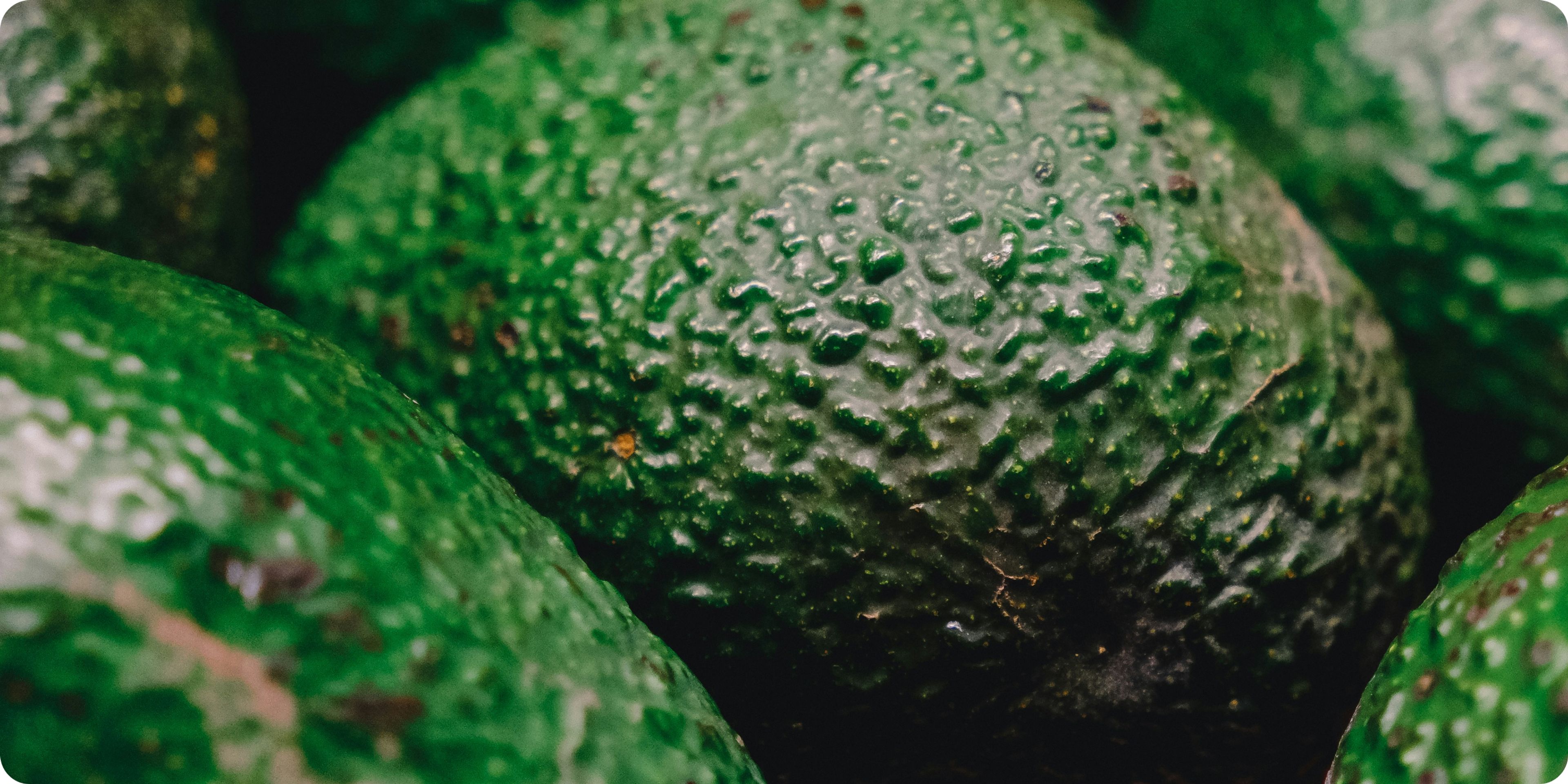
Avocados
An avocado a day can also keep cognitive decline at bay. In addition to being rich in healthy fats, avocados are a quality source of lutein, a compound beneficial for cognitive health.[11]
A recent study found those who ate an avocado every day for 12 weeks had improved attention.[12] Those consuming avocados or guacamole regularly also have significantly better cognitive test scores, according to a national survey involving close to 3,000 people.[13]
Legumes
Eating more foods in the legume family, such as beans, peas, and lentils, may also support cognitive function. While more research is needed, there is an association between consuming legumes and improved cognitive performance.[14]
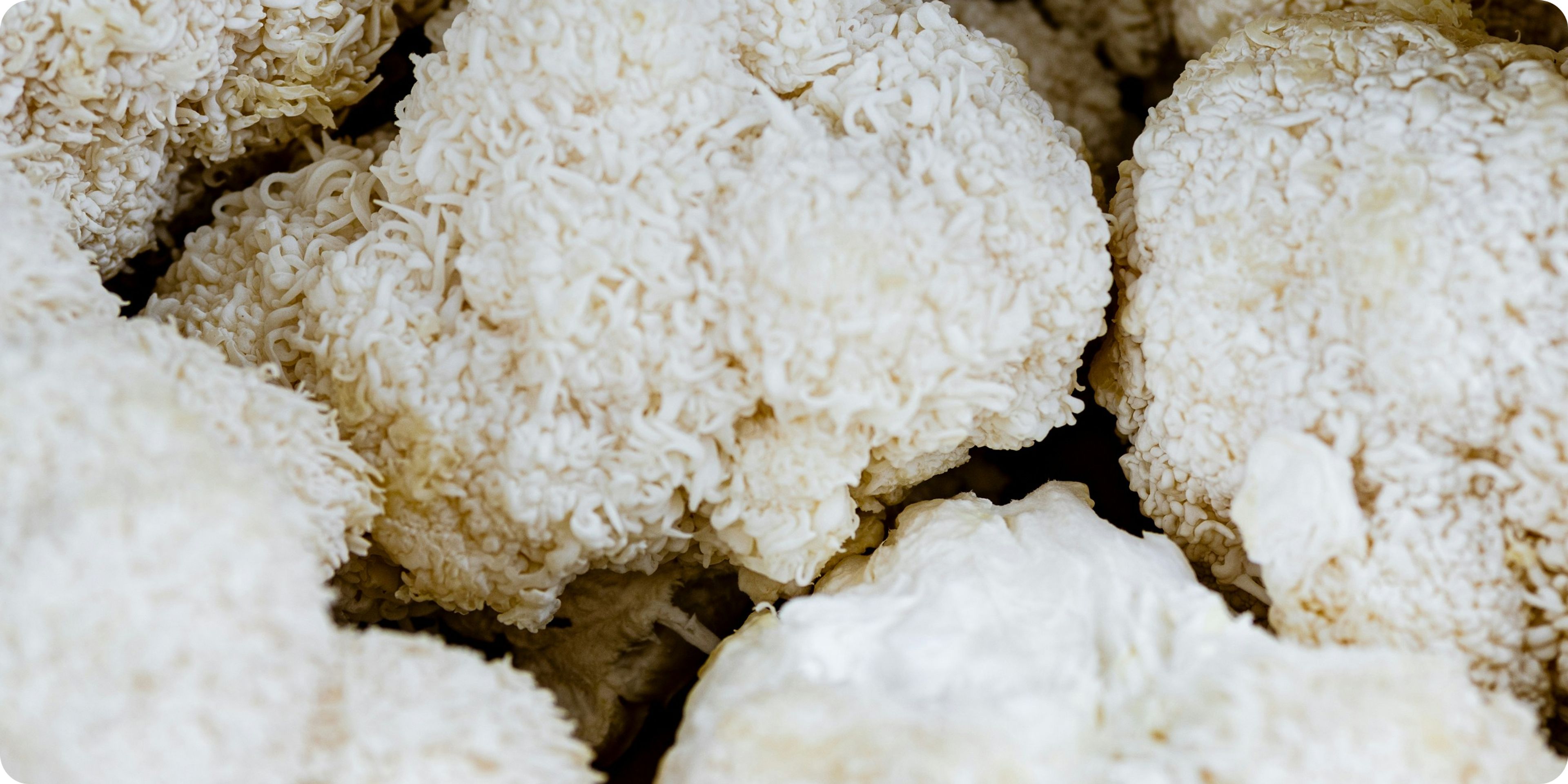
Lion’s Mane Mushrooms
Lion’s mane mushrooms, also known as Hericium erinaceus, is a medicinal mushroom with cognitive-enhancing properties. It is consumed primarily in supplement form and has been shown to improve scores on cognitive tests. After a month of consistent use,[15] it has been shown to improve short-term focus and reduce stress.[16]
These brain benefits are thought to be due to the active ingredient ergothioneine (ERGO) in Lion’s mane, which has an antioxidant effect. ERGO is easily absorbed in the digestive system and is distributed to various organs, including the brain. It is then said to promote new brain cell formation, which can help the brain learn new information and support memory.[17]
MCT Oil
MCT oil stands for Medium-Chain-Triglycerides, another type of fat that is linked to improved brain function. MCTs are chemically shorter in length than most other types of fats and are found in coconut oil, palm kernel oil, and dairy products.
Because they are shorter in length, they are more easily absorbed and used by the body and are often taken for weight loss as well as for cognitive function.
While more studies are needed, taking MCT oil daily has the potential to improve cognitive function in those with mild cognitive decline.[18]
Foods with phosphatidylserine
Foods like fish, poultry, meat, and soybeans contain phosphatidylserine, a crucial nutrient for brain function. Phosphatidylserine is a phospholipid (a type of lipid) that is a critical component of cell membranes, particularly in brain cells. It plays a key role in maintaining the structure and function of neurons, and supporting cell-to-cell communication.[19]
Consuming phosphatidylserine through food or supplement form may help support cognitive function as we age.
Selenium-rich foods
Selenium is a powerful antioxidant, and consuming foods high in this mineral selenium may be able to support brain health with age[20]. Brazil nuts, seafood, meat, poultry, and organ meats are rich sources of selenium, which supports brain health by reducing oxidative stress. This type of stress, caused by an imbalance of free radicals in the body, can contribute to brain aging.
What type of food to avoid for your brain health?
While many foods support brain health, you’ll want to avoid the foods below as much as possible. These types of foods have been shown to have a negative impact on brain health.
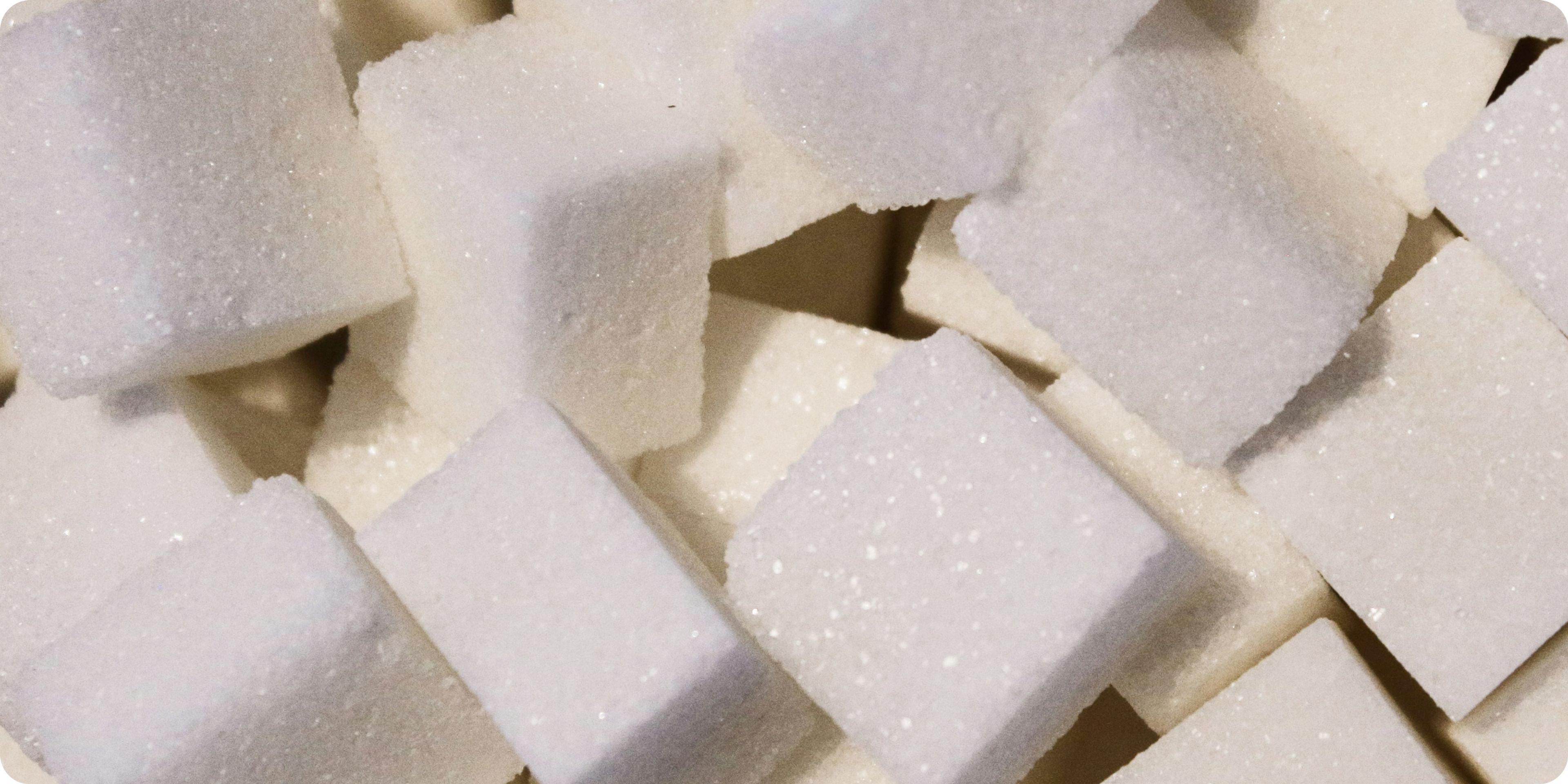
Added sugar
Studies have linked high levels of added sugar in the diet to increased risk of cognitive impairment. Added sugar is not the type found naturally in fruits and starchy veggies but the type that is intentionally added to sweetened beverages, granola bars, ice creams, and other sugary snacks.
According to multiple studies, there is a significant link between added sugar consumption and the risk of developing cognitive impairment.[21]
This is also seen to be the case specifically with older adults, where excess added sugar intake may lead to poor memory and worsening cognitive function.[22]
Saturated fats
While omega-3 fats appear to be protective for the brain, saturated fats found in red meats, butter, and full-fat dairy products may negatively impact brain health. High intake of saturated fats is linked to increased inflammation, oxidative stress, and the accumulation of amyloid plaques in the brain. Diets high in saturated fats have also been linked to poorer cognitive performance and an increased risk of dementia.[23]
While we all need some fat in our diet, choosing more omega-3 fats over saturated fats is smart both for brain health and overall health.[24]
Refined grains
A greater intake of whole grains in place of refined grains is associated with improved mood and anxiety scores. Refined grains such as white bread, pasta, and sweets are more processed and tend to cause more blood sugar spikes and dips, while whole grains are more nutritious and thus fuel the brain.[25]
While the research on this connection is still ongoing, there is a definite link between a greater intake of whole grains such as whole wheat bread, steel-cut oats, and quinoa and a reduced risk of cardiovascular disease and diabetes. This is important because a reduced risk of these conditions is linked to cognitive health.[26]
Alcohol
Alcohol intake is common in Western countries and is increasing in older adults. Chronic heavy alcohol intake is associated with more severe memory impairment, brain atrophy, and dementia.[27]
And, while some guidelines suggest moderate alcohol consumption may be protective for the brain, more updated research challenges this recommendation. Current recommendations, therefore, suggest limiting alcohol intake to one drink daily. If you’re not currently drinking, it’s not advised to start.[28]
Wrapping up
The connection between diet and overall brain function is crucial as we age.
A diet rich in brain-boosting foods, such as leafy greens, fatty fish, and walnuts, can help in reducing age-related cognitive decline. By incorporating brain-supporting nutrients like selenium, ergothioneine, and omega-3 fats, you are helping to support your brain health as you age.
Conversely, diets high in ultra-processed foods, added sugar, unhealthy fats, and alcohol can negatively impact brain function. By prioritizing a brain food diet, you can support your cognitive abilities and enjoy a better quality of life.
Authors

Written by
Dietitian-Nutritionist, and Health Content Writer

Reviewed by
Director Science Communications
References
- ↑
Gomes Gonçalves N, Vidal Ferreira N, Khandpur N, et al. Association Between Consumption of Ultraprocessed Foods and Cognitive Decline. JAMA Neurol. 2023;80(2):142–150. doi:10.1001/jamaneurol.2022.4397
- ↑
Howard A, Robinson M, Smith G, Ambrosini G, JP P, Oddy W. ADHD is associated with a “Western” dietary pattern in adolescents. Journal of attention disorders. 2011;15(5):403–11.
Akbaraly T, Brunner E, Ferrie J, Marmot M, Kivimaki M, Singh-Manoux A. Dietary pattern and depressive symptoms in middle age. The British Journal of Psychiatry. 2009;195(5):408–13.
- ↑
Phillips C. Lifestyle Modulators of Neuroplasticity: How Physical Activity, Mental Engagement, and Diet Promote Cognitive Health during Aging. Neural Plast. 2017;2017:3589271. doi: 10.1155/2017/3589271. Epub 2017 Jun 12. PMID: 28695017; PMCID: PMC5485368.
- ↑
Puri S, Shaheen M, Grover B. Nutrition and cognitive health: A life course approach. Front Public Health. 2023 Mar 27;11:1023907. doi: 10.3389/fpubh.2023.1023907. PMID: 37050953; PMCID: PMC10083484.
- ↑
Poulose SM, Miller MG, Scott T, Shukitt-Hale B. Nutritional Factors Affecting Adult Neurogenesis and Cognitive Function. Adv Nutr. 2017 Nov 15;8(6):804-811. doi: 10.3945/an.117.016261. PMID: 29141966; PMCID: PMC5683005.
- ↑
Morris, M., Wang, Y., Barnes, L., Bennett, D., Dawson-Hughes, B., & Booth, S. (2018). Nutrients and bioactives in green leafy vegetables and cognitive decline. Neurology, 90, e214 - e222. https://doi.org/10.1212/WNL.0000000000004815 (https://www.google.com/url?q=https://doi.org/10.1212/WNL.0000000000004815&sa=D&source=docs&ust=1725657180807602&usg=AOvVaw2eCTRa_NZb0NK1dK0peFSa).
- ↑
Dighriri IM, Alsubaie AM, Hakami FM, Hamithi DM, Alshekh MM, Khobrani FA, Dalak FE, Hakami AA, Alsueaadi EH, Alsaawi LS, Alshammari SF, Alqahtani AS, Alawi IA, Aljuaid AA, Tawhari MQ. Effects of Omega-3 Polyunsaturated Fatty Acids on Brain Functions: A Systematic Review. Cureus. 2022 Oct 9;14(10):e30091. doi: 10.7759/cureus.30091. PMID: 36381743; PMCID: PMC9641984.
- ↑
American Heart Association. Fish and Omega-3 Fatty Acids. Accessed September 3, 2024. Last reviewed August 23, 2024. https://www.heart.org/en/healthy-living/healthy-eating/eat-smart/fats/fish-and-omega-3-fatty-acids/
- ↑
Nishi SK, Sala-Vila A, Julvez J, Sabaté J, Ros E. Impact of Nut Consumption on Cognition across the Lifespan. Nutrients. 2023 Feb 16;15(4):1000. doi: 10.3390/nu15041000. PMID: 36839359; PMCID: PMC9965316.
- ↑
Hein S, Whyte AR, Wood E, Rodriguez-Mateos A, Williams CM. Systematic Review of the Effects of Blueberry on Cognitive Performance as We Age. J Gerontol A Biol Sci Med Sci. 2019 Jun 18;74(7):984-995. doi: 10.1093/gerona/glz082. PMID: 30941401.
- ↑
Stringham JM, Johnson EJ, Hammond BR. Lutein across the Lifespan: From Childhood Cognitive Performance to the Aging Eye and Brain. Curr Dev Nutr. 2019 Jun 4;3(7):nzz066. doi: 10.1093/cdn/nzz066. PMID: 31321376; PMCID: PMC6629295.
- ↑
HD, Khan NA. Effects of 12-week avocado consumption on cognitive function among adults with overweight and obesity. Int J Psychophysiol. 2020 Feb;148:13-24. doi: 10.1016/j.ijpsycho.2019.12.006. Epub 2019 Dec 14. PMID: 31846631.
- ↑
Cheng FW, Ford NA, Taylor MK. US Older Adults That Consume Avocado or Guacamole Have Better Cognition Than Non-consumers: National Health and Nutrition Examination Survey 2011-2014. Front Nutr. 2021 Oct 14;8:746453. doi: 10.3389/fnut.2021.746453. PMID: 34722611; PMCID: PMC8551489.
- ↑
Mazza E, Fava A, Ferro Y, Moraca M, Rotundo S, Colica C, Provenzano F, Terracciano R, Greco M, Foti D, Gulletta E, Russo D, Bosco D, Pujia A, Montalcini T. Impact of legumes and plant proteins consumption on cognitive performances in the elderly. J Transl Med. 2017 May 22;15(1):109. doi: 10.1186/s12967-017-1209-5. PMID: 28532453; PMCID: PMC5440936.
- ↑
Saitsu Y, Nishide A, Kikushima K, Shimizu K, Ohnuki K. Improvement of cognitive functions by oral intake of Hericium erinaceus. Biomed Res. 2019;40(4):125-131. doi: 10.2220/biomedres.40.125. PMID: 31413233.
- ↑
Docherty S, Doughty FL, Smith EF. The Acute and Chronic Effects of Lion's Mane Mushroom Supplementation on Cognitive Function, Stress and Mood in Young Adults: A Double-Blind, Parallel Groups, Pilot Study. Nutrients. 2023 Nov 20;15(22):4842. doi: 10.3390/nu15224842. PMID: 38004235; PMCID: PMC10675414.
- ↑
Ishimoto T, Kato Y. Ergothioneine in the brain. FEBS Lett. 2022 May;596(10):1290-1298. doi: 10.1002/1873-3468.14271. Epub 2022 Jan 10. PMID: 34978075.
- ↑
Sun L, Ye KX, Wong HLK, Wang L, Lim SL, Chao YX, Zhang C, Yap KZ, Feng L. The Effects of Medium Chain Triglyceride for Alzheimer's Disease Related Cognitive Impairment: A Systematic Review and Meta-Analysis. J Alzheimers Dis. 2023;94(2):441-456. doi: 10.3233/JAD-230406. PMID: 37248908; PMCID: PMC10357178.
- ↑
Glade MJ, Smith K. Phosphatidylserine and the human brain. Nutrition. 2015 Jun;31(6):781-6. doi: 10.1016/j.nut.2014.10.014. Epub 2014 Nov 4. PMID: 25933483.
- ↑
Solovyev ND. Importance of selenium and selenoprotein for brain function: From antioxidant protection to neuronal signalling. J Inorg Biochem. 2015 Dec;153:1-12. doi: 10.1016/j.jinorgbio.2015.09.003. Epub 2015 Sep 15. PMID: 26398431.
- ↑
Gillespie KM, White MJ, Kemps E, Moore H, Dymond A, Bartlett SE. The Impact of Free and Added Sugars on Cognitive Function: A Systematic Review and Meta-Analysis. Nutrients. 2023 Dec 25;16(1):75. doi: 10.3390/nu16010075. PMID: 38201905; PMCID: PMC10780393.
- ↑
Chong CP, Shahar S, Haron H, Din NC. Habitual sugar intake and cognitive impairment among multi-ethnic Malaysian older adults. Clin Interv Aging. 2019 Jul 22;14:1331-1342. doi: 10.2147/CIA.S211534. PMID: 31413554; PMCID: PMC6662517.
- ↑
Morris MC, Tangney CC. Dietary fat composition and dementia risk. Neurobiol Aging. 2014 Sep;35 Suppl 2:S59-64. doi: 10.1016/j.neurobiolaging.2014.03.038. Epub 2014 May 15. PMID: 24970568; PMCID: PMC4107296.
- ↑
Fadó R, Molins A, Rojas R, Casals N. Feeding the Brain: Effect of Nutrients on Cognition, Synaptic Function, and AMPA Receptors. Nutrients. 2022 Oct 5;14(19):4137. doi: 10.3390/nu14194137. PMID: 36235789; PMCID: PMC9572450.
- ↑
Ross AB, Shertukde SP, Livingston Staffier K, Chung M, Jacques PF, McKeown NM. The Relationship between Whole-Grain Intake and Measures of Cognitive Decline, Mood, and Anxiety-A Systematic Review. Adv Nutr. 2023 Jul;14(4):652-670. doi: 10.1016/j.advnut.2023.04.003. Epub 2023 Apr 19. PMID: 37085091; PMCID: PMC10334137.
- ↑
Ross AB, Shertukde SP, Livingston Staffier K, Chung M, Jacques PF, McKeown NM. The Relationship between Whole-Grain Intake and Measures of Cognitive Decline, Mood, and Anxiety-A Systematic Review. Adv Nutr. 2023 Jul;14(4):652-670. doi: 10.1016/j.advnut.2023.04.003. Epub 2023 Apr 19. PMID: 37085091; PMCID: PMC10334137.
- ↑
Topiwala A, Ebmeier KP. Effects of drinking on late-life brain and cognition. Evid Based Ment Health. 2018 Feb;21(1):12-15. doi: 10.1136/eb-2017-102820. Epub 2017 Dec 22. PMID: 29273599; PMCID: PMC10270452.
- ↑
Topiwala A, Ebmeier KP. Effects of drinking on late-life brain and cognition. Evid Based Ment Health. 2018 Feb;21(1):12-15. doi: 10.1136/eb-2017-102820. Epub 2017 Dec 22. PMID: 29273599; PMCID: PMC10270452.
Disclaimer
The information in this article is for informational purposes only and should not be taken as medical advice. Always consult with your medical doctor for personalized medical advice.
